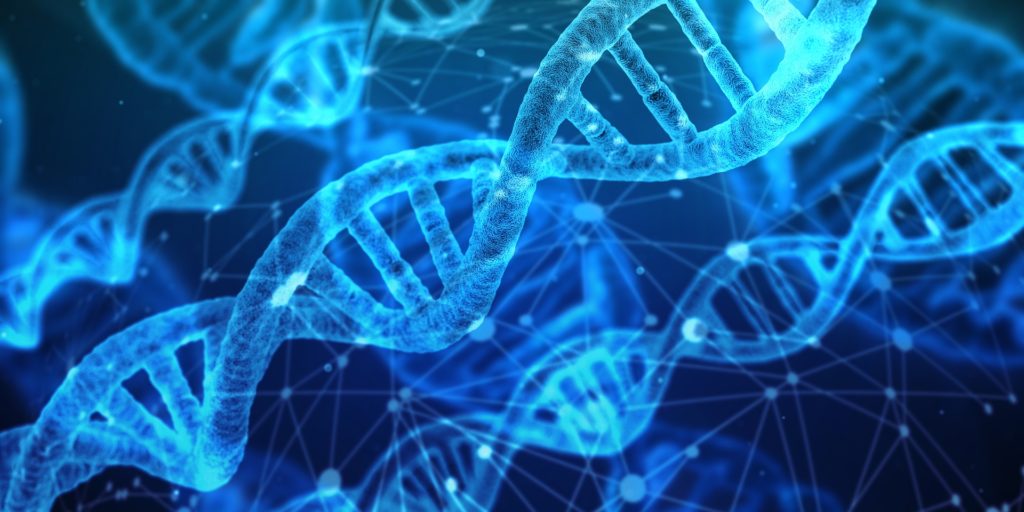
Why do some people suffer from addiction while others do not? This is a question medical professionals and scientists have been pondering for decades. And while studies have long suggested a genetics component to addiction, the specific neurobiological mechanisms influencing addiction remained unclear.
But recent research may be changing that, revealing the reason why some of us may be genetically programmed toward addiction while others may not.
Addiction: Nature or Nurture?
Contrary to what some people may still believe, addiction is a brain disorder. Back in the 1980s, scientists like Dr. Nora Volkow, now the director of the National Institute on Drug Abuse, revolutionized the way we view addiction.
By carefully studying people's brains with drug addictions, she and her colleagues discovered that addictions cause significant changes to the brain [1]. This finding opened up the door to a whole new discussion on drug addiction's compulsive nature and the possible genetic components of addictions in general.
Since this early finding, more and more research has uncovered the fact that biological and genetic components play an important role in addiction. For example, family studies involving siblings, adoptees, identical and fraternal twins revealed that approximately 50 percent of a person’s risk of addiction to alcohol and drugs depends on their genetic makeup [2].
Other studies have found that when exposed to the same dose of an addictive drug, some people are more vulnerable to forming an addiction than others, even when factors like environmental influences are taken into account [3].
Does this mean a person’s environment, upbringing, past traumas, and lifestyle choices have no influence on addiction? In other words, do genetics alone cause you to develop an addiction?
Of course not. Though research shows genetic factors play an even more important role in addiction than we once believed, a person’s lifestyle choices and environmental influences are still considered important contributors to addiction development. However, the truth remains that genetic components make certain people more susceptible to forming an addiction than others.
Addiction and the Genetics Factor
 While the specific genetic factors influencing addiction development have long been a mystery, a recent study conducted by the Korea Brain Research Institute (KRBI) made a ground-breaking discovery. They found that dopamine D2 receptors (DRD2s) in cholinergic interneurons (ChINs) play a critical part in cocaine addiction. What does this mean?
While the specific genetic factors influencing addiction development have long been a mystery, a recent study conducted by the Korea Brain Research Institute (KRBI) made a ground-breaking discovery. They found that dopamine D2 receptors (DRD2s) in cholinergic interneurons (ChINs) play a critical part in cocaine addiction. What does this mean?
Dopamine is a neurotransmitter in the brain, commonly called the “pleasure hormone.” When a person uses addictive substances, their brain responds by releasing dopamine. Dopamine receptors play a critical role in this process. Located on various cell membranes, primarily in the central nervous system, dopamine receptors allow the body’s cells to respond and bind to dopamine.
This means when drugs of abuse are consumed, the dopamine concentration in the brain’s reward system spikes and dopamine receptors are activated. Once dopamine receptors have been activated by drugs, the body experiences an intense desire for more drugs [4]. In short, dopamine receptors are a key player in the addiction process.
In the KRBI study mentioned above, researchers found evidence of DRD2 overexpression among mice who were susceptible to addiction [5]. Meaning addiction-susceptible mice had increased levels of DRD2 (dopamine D2 receptors) and diminished levels of cell activation (since D2 receptor activation reduces ChIN activity). Again, what does all this mean?
Essentially, the researchers discovered that gene expression in ChIN might cause susceptibility to addiction since addiction-susceptible individuals (in this case, mice) displayed increased levels of DRD2 expression. This knowledge of the specific genetic factors involved in addiction susceptibility may pave the way for new therapeutic strategies to prevent and treat drug addiction.
“We have pioneered a new area in addiction research,” stated the research team. They go on to say that thanks to their findings, “Searching for any candidate drugs that can control such susceptibility by regulating the activity of ACh receptors might be another feasible future plan” [6].
References:
[1] National Institute on Drug Abuse. (2020, July 7). What Does It Mean When We Call Addiction a Brain Disorder? National Institute on Drug Abuse. https://www.drugabuse.gov/about-nida/noras-blog/2018/03/what-does-it-mean-when-we-call-addiction-brain-disorder.
[2] National Institute on Drug Abuse. (2020, June 16). Genetics and Epigenetics of Addiction DrugFacts. National Institute on Drug Abuse. https://www.drugabuse.gov/publications/drugfacts/genetics-epigenetics-addiction.
[3] ScienceDaily. (2020, June 2). Some people are easily addicted to drugs, but others are not. ScienceDaily. https://www.sciencedaily.com/releases/2020/06/200602110057.htm.
[4] ibid.
[5] ibid.
[6] ibid.
About the Author:
 Sarah Musick is a freelance writer who specializes in eating disorder awareness and education. After battling with a 4-years long eating disorder, she made it her mission to help others find hope and healing in recovery.
Sarah Musick is a freelance writer who specializes in eating disorder awareness and education. After battling with a 4-years long eating disorder, she made it her mission to help others find hope and healing in recovery.
Her work has been featured on numerous eating disorder blogs and websites. When she’s not writing, Sarah is off traveling the world with her husband.
The opinions and views of our guest contributors are shared to provide a broad perspective of addictions. These are not necessarily the views of Addiction Hope, but an effort to offer a discussion of various issues by different concerned individuals.
We at Addiction Hope understand that addictions result from multiple physical, emotional, environmental, and genetic factors. If you or a loved one are suffering from an addiction, please know that there is hope for you, and seek immediate professional help.
Published on September 29, 2020
Reviewed by Jacquelyn Ekern, MS, LPC on September 29, 2020
Published on AddictionHope.com
